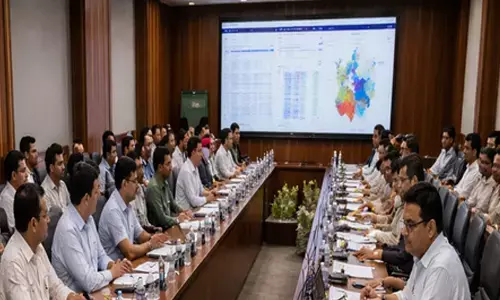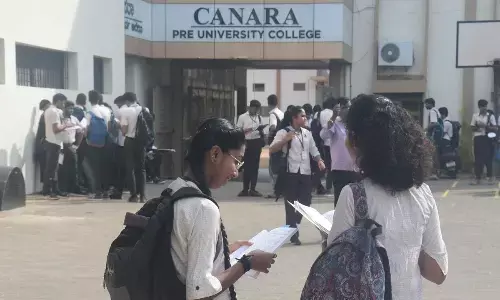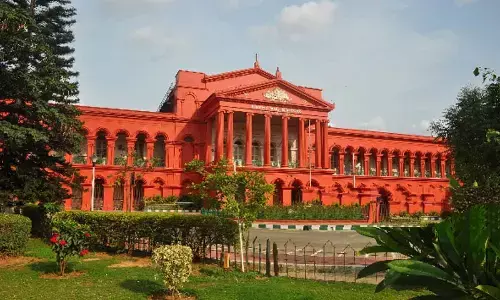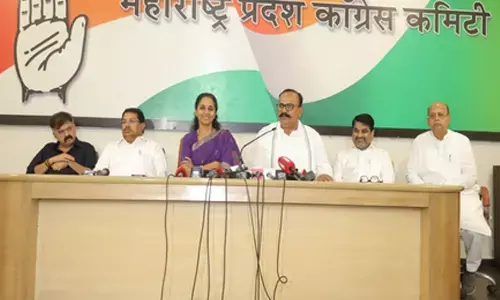FM keeps suspense over legality of cryptocurrencies

FM keeps suspense over legality of cryptocurrencies
Budget FY23 imposed 30% tax on income from the profits made on the trading of cryptocurrencies. It also proposed 1% TDS, which is to be reconciled with the profits, if any
The risks arising out of crypto-currencies for all countries are money laundering and terror funding, PTI quoted her as saying. She highlighted the problems associated with crypto-currencies: "The risk which worries me more on the non-governmental domain is essentially you're looking at unhosted wallets across the borders, across the globe… So, regulation cannot be done by a single country within its terrain through some effective method and for doing it across the borders, technology doesn't have a solution which will be acceptable to various sovereigns at the same time applicable within each of the territory
The legal status of cryptocurrencies like Bitcoin remains unclear, with Finance Minister Nirmala Sitharaman refusing to clarify the government's stance towards them.
Budget 2022-23 had imposed a 30 per cent tax on income from the profits made on the trading of such currencies transactions. Also, 1 per cent TDS, or tax deducted at source, on the transactions was proposed, which is to be reconciled with the profits, if any.
A lot of people assumed that taxation meant legalization of crypto-currencies. This, however, is not true. In a 2008 judgment, the Madras High Court had made it clear that illegally earned money can be taxed. It said, "The primary function of the Income Tax Act is to bring the income of various kinds into the tax net. The Income Tax authorities are not concerned about the manner or means of acquiring income. The income might have been earned illegally or by resorting to unlawful means. Illegality tainted with the earning has no bearing on its taxability."
Finance Ministry officials didn't make things easier at that time. On February 2, Finance Secretary T.V. Somanathan told a news channel, "They [crypto-currencies] are in a grey area. It's not illegal to buy and sell crypto." On February 4, however, he said that crypto-currency "will never be a legal tender."
Confusion over the legal status has persisted since then. Speaking at a panel discussion organized by the International Monetary Fund (IMF) in Washington, the Finance Minister said, "It wasn't as if we have legitimized them [crypto-currencies]. We haven't said that this is currency. We haven't said that this has an intrinsic value. Certain operations are taxable for the sovereign, so that's why we have done this."
The risks arising out of crypto-currencies for all countries are money laundering and terror funding, PTI quoted her as saying. She highlighted the problems associated with crypto-currencies: "The risk which worries me more on the non-governmental domain is essentially you're looking at unhosted wallets across the borders, across the globe… So, regulation cannot be done by a single country within its terrain through some effective method and for doing it across the borders, technology doesn't have a solution which will be acceptable to various sovereigns at the same time applicable within each of the territory."
Her concerns are genuine, but it would be better for the government to announce for once and all the legal status of crypto-currencies. It may be mentioned here that the Reserve Bank of India had banned crypto-currencies in April 2018, but two years later a three-judge bench of the Supreme Court had invalidated the ban.
Despite the apex court verdict, RBI Governor Shaktikanta Das has stuck to the demand to proscribe all private crypto-currencies. He has raised "serious and major concerns" over crypto-currencies, also called virtual currencies.
It is time the government decided on the legality of crypto-currencies one way or the other. The suspense is not doing any good to the estimated 20 million people, mostly youngsters, who have invested in crypto-currencies.











